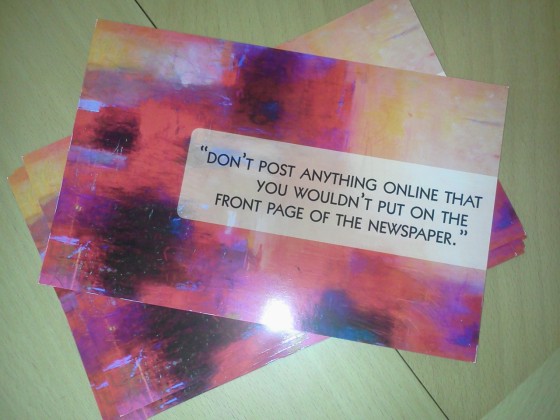What should you do if you discover that someone is using a photo you took without your permission? As the person who took the photo, you are likely the copyright owner, which gives you the right to control where and how your work is copied, distributed, displayed, and used in other works. You may have grounds to sue the person for copyright infringement, but that’s often not a practical course of action, especially if your damages are minimal or the alleged infringer doesn’t have means to pay you the damages.
In many cases, the owner simply wants the person to stop using their image, so what do you do? If your goal is removal of the photo and cessation of further uses, this is one way to proceed.
1. Dial Direct: Contact the suspected infringer directly, inform him/her of your concerns, and request that they remove the image. Many people still believe that they can use any image they find on the internet as long as they give an attribution and a link to the original.
Look for contact information on their website if that’s where the alleged infringement is occurring. If that information is not available, it might be listed on WhoIs from when the person registered the domain.
2. Send a DMCA Takedown Notice: If you can’t contact the person or they don’t respond to your request to remove your image, you can send a DMCA takedown notice to the company that hosts their content. If the image is on a person’s website, be aware that the company that registered the domain is not necessarily the same company that hosts the site. Before I send a DMCA takedown notice, I usually contact the hosting company and verify that they host the site in question. I also ask if there’s a specific email address to use to send DMCA notices or if they have a form on their site for submitting them.
The downside of sending a DMCA takedown notice is that it may result in the image being removed, but only for a short time. The infringer can have the content restored to their site merely by sending a counter takedown notice.
3. Consider the Court or the Court of Public Opinion: If sending a DMCA takedown notice is not effective, you may have to sue the person to get the image removed from their site or account. You may also consider turning to the court of public opinion. If you pursue the latter option, be careful about what you say. You don’t want this person to have grounds to sue you for defamation, false light, or a similar claim.
If you’re interested in seeing an epic copyright battle that was fought in the courts and the public eye, I recommend The Oatmeal vs. FunnyJunk. Be sure to read this update, this one, and this one too.
Of course if you’re in this type of situation, it’s best to consult a copyright lawyer to determine the best course of action based on your specific circumstances. If you want to talk with me about copyright issues, you can contact me directly or connect with me on Twitter, Facebook, YouTube, or LinkedIn. You can also get access to more exclusive content, entrepreneurial tips, and rants that are available only to people on my mailing list, by subscribing here.




